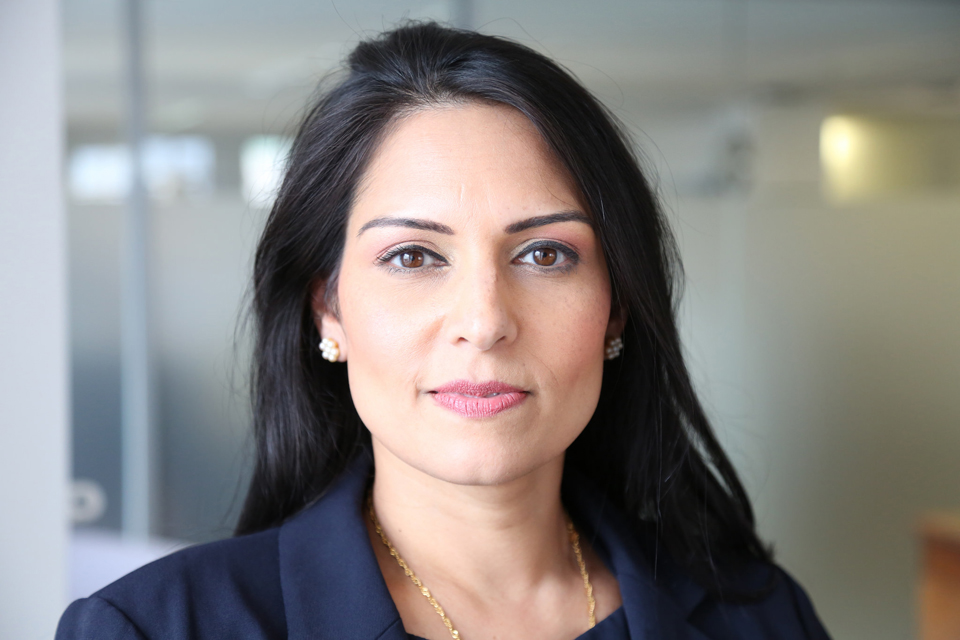The world is sleepwalking towards catastrophic famine – Britain will help prevent this
International Development Secretary Priti Patel announces new humanitarian support for South Sudan and Somalia and calls on international community to step up their response.

This year the world is facing numerous humanitarian crises which, taken together, are on a scale not witnessed in recent times. The extent of the challenge is unprecedented, set against a backdrop of immense human suffering. Before this week there has been only one certified famine globally since 2000.
Parts of South Sudan are now in famine and there is a credible risk of famine in Yemen, North East Nigeria and Somalia - drought and conflict are pushing families to the brink of starvation. That is why today I am announcing new support combined with a call to the international community to step up to ensure 2017 is not defined as a year where people died of hunger and drought on a catastrophic scale.
As a nation, we face a choice. With parts of the world on fire, can we ignore the despair beyond our borders? Or do we use our global influence and leadership to confront these challenges head-on? The answer lies in the great British values of fairness and compassion for those less fortunate. The immense generosity of the British public shines through in responses to emergency appeals. British aid workers will always be among the first on the ground bringing relief and now the world is looking to Britain for our leadership once again.
So far the international response to these crises has been inadequate. We are sleepwalking towards catastrophe. Earlier this week famine was declared in parts of South Sudan. In Somalia, a country that saw a quarter of million people die from famine in 2011, the drought conditions are as bad, if not worse than five years ago.
The challenge is unprecedented and the warnings are growing louder: we need a comprehensive response. In Somalia, more than 6 million people have no reliable access to food and there are 360,000 acutely malnourished children. When I visited Somalia it was clear we have to act now to avoid major loss of life. That’s why I am announcing a package of UK humanitarian relief that will provide emergency food aid and water to 1 million people.
In South Sudan almost 5 million face the daily threat of going without enough food and water and 3 million people have been forced from their homes because of ruthless violence and widespread use of rape. That is why this year UK aid will provide food assistance for over 500,000 people, life-saving nutritional support to more than 27,500 children and safe drinking water for over 300,000 people.
Within these crises the risk of famine is exacerbated by conflict, instability and a lack of respect for international humanitarian law. Without political progress to allow access to the areas of the country where famine is taking hold we will not be able reach those in desperate need. The international community must exert pressure on the South Sudanese regime to end the ethnic violence which risks collapsing the country into famine and genocide.
As we step up our response it is vital we ensure UK support goes to where it is desperately needed. I have seen for myself how, in times of crisis, the world looks to Britain not just for our work on the ground, but also for our leadership internationally. Britain will use our place in the world to build a faster, more effective humanitarian system fit for the 21st Century. And to ensure all of this happens at pace, I recently brought together a group of major donors to work together on driving forward much needed reform.
If the international community steps up, quickly, we can save countless lives this year. From painful experience, we know the longer we wait the higher the price humanity will pay. I will be lobbying other governments, the UN and international agencies hard in the weeks and months ahead. We will continue to exert diplomatic pressure to get food flowing into Yemen and humanitarian aid to people under siege in Syria, while continuing to work towards political solutions.
As well as providing urgent humanitarian support, we are also working with refugee host communities to create jobs and education to reduce the pressure to migrate to Europe.
Wherever possible our help will be branded with the Union Jack – so people around the world can see support UK taxpayers are providing. When people in refugee camps or remote communities see our flag displayed proudly on our emergency supplies, they know they have a friend and an ally in Britain.
This is why we make our commitment to UK aid, for these times of crisis.
Britain is at its best when we stand up for the values that we believe in. In the coming months I will ensure my department’s energy is focused on relentlessly tackling these crises and galvanising others to step up as we seek to avert catastrophe. Doing so is in the world’s interest and ours. 2017 could be the ultimate test of our international system and a test of our shared humanity; the world cannot afford to fail it.
This article was first published in The Telegraph on 22 February 2017.